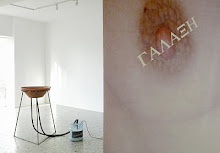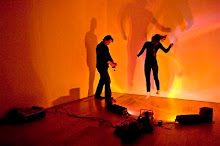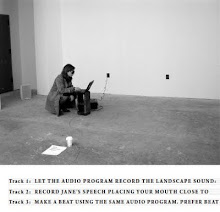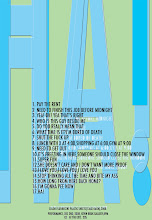Story Line
A perfect tragedy should be arranged not on the simple but on the complex plan. It should moreover imitate the actions which excite pity and fear, this being the distinctive mark of tragic imitation. It follows plainly, in the first place, that the change of fortune presented must not be the spectacle of the virtuous man brought from prosperity to adversity: for this moves neither pity nor fear, it merely shocks us. Nor, again, that of a bad man passing from adversity to prosperity: for nothing can be more alien to the spirit of tragedy; it possesses no single tragic quality- it neither satisfies the moral sense nor calls forth pity or fear. Nor, again, should be downfall of the utter villain be exhibited. A plot of this kind would doubtless satisfy the moral sense, but it would inspire neither pity nor fear; for pity is aroused by unmerited misfortune, fear by the misfortune of a man like ourselves. Such an event, therefore, will be neither pitiful nor terrible. There remains, then, the character between these two extremes- that of a man who is not eminently good and just, yet whose misfortune is brought about not by vice or depravity but by some error or frailty. He must be one who is highly renowned and prosperous.
A well constructed plot should therefore be single in its issue, rather than double as some maintain. The change of fortune should be not from bad to good, but, reversely, from good to bad. It should come about as the result not of vice but of some great error or frailty, in a character either such as we have described, or better rather than worse. The practice of the stage bears out our view. At first the poets recounted any legend that came in their way. Now, the best tragedies are founded on the story of a few houses - on the fortunes of Alcmaeon, Oedipus, Orestes, Meleager, Thyestes, Telephus, and those others who have done or suffered something terrible. A tragedy, then, to be perfect according to the rules of art, should be of this construction.
Questions:
What is the role of the chorus in the drama? How does the chorus follow the character?
For performance art, the drama is already staged and the performer returns the role of the audience to the audience, by embodying different states of spectatorship.
The performer is a spectator, meaning she is already part of an ongoing spectacle that she responds to. She is a part of the spectacle, she is not outside nor inside, she is already a part of it. Does then a performance piece need a plot? No, and that's what makes performance art different to theater or any other performance (music, dance, cinema) because it mostly demands the performer's actuality and truthful response to the ongoing, present drama, life as it is. It is the way chorus responds to Oedipus or speaks the secrets of Antigone. If life as it is, it is already a spectacle, her response to the main characters turns flat. The chorus is the agora already on stage. This is how it is and it is part of the performance to show that there is a way that this body, our bodies on stage, can take responsibility for the acts of the main characters, the rulers of the drama. If there is something to focus upon now it is the making of that body, how to awaken it, how to create the language and the movements that speaks, and how they can be activated.
Is it possible to understand that there is no separation between drama and real life?
If everything is spectacle including our own bodies what she wants to show is that she still can receive as if for the first time and the gestures will be of that exact moment. The gestures cannot be fully prepared yet cannot exist without ground, without memory, a memory of reality. They can't be from something personal, as they will limit her focus, but they can't be without her heart because that will limit her expressions. The choric body, khoriko soma, which occupies but doesn't territorialise, which speaks out truth, undefined but specific in movement.
Some performances want just to add another layer of spectacle on the existing one by using the same violent, grotesque tricks. Others assume that violating the body will give examples of how spectacle can be harmed but in the end they only achieve alienation. Some want just to comfort themselves and all of those around them, to make them forget, to make them sleep a deeper sleep than they are already in.
As, I understand it, there is not an either or not, there is neither against or acceptance, but response. Response maybe replaced with the word come back or feedback but maybe it is not the right word. I am using this word without the reactionary root which it carries, but well, this come back, this response, the feedback, has nothing to do with tricks and examples. It is immediate and it is actual and it is disturbing how more actual it can be.
So when the performance starts?
Does it end?
Does it need to be good?
For the witch, ruptures come in time and out of smell.
3/25/2010
Εγγραφή σε:
Σχόλια ανάρτησης (Atom)





































Δεν υπάρχουν σχόλια:
Δημοσίευση σχολίου